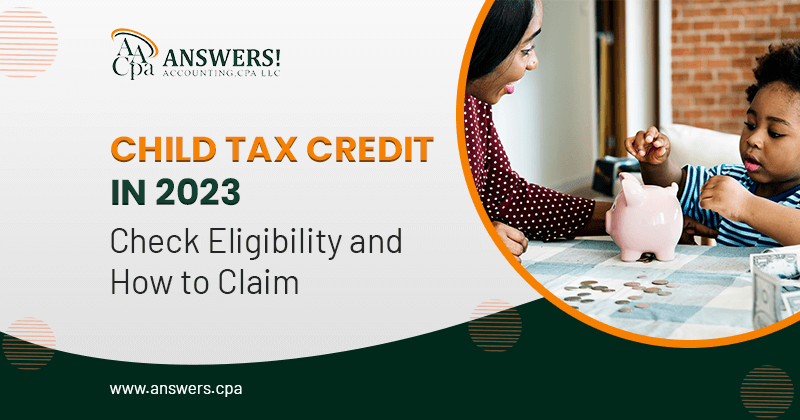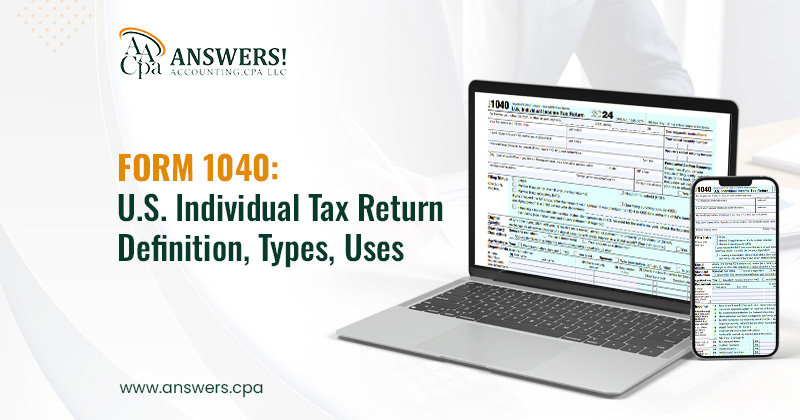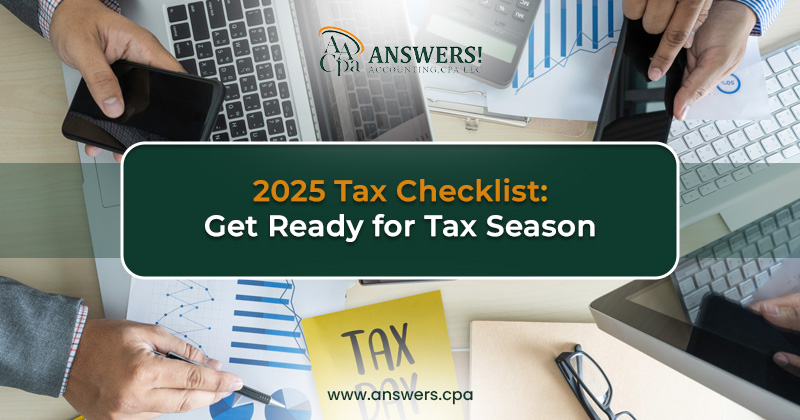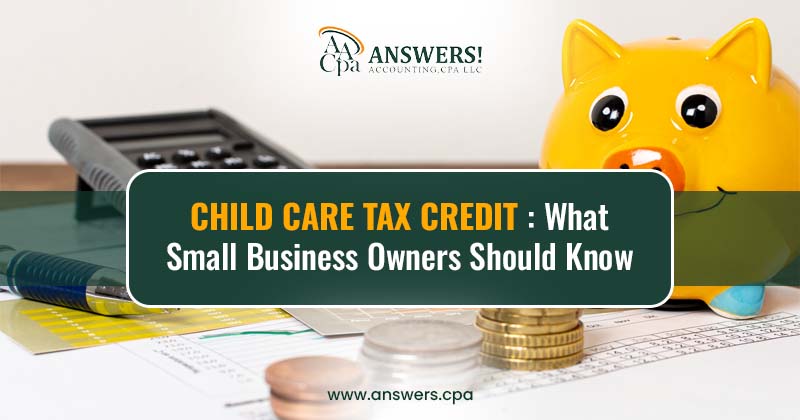Child Tax Credit in 2023 -2024: Check Eligibility and How to Claim
In 2023, the Child Tax Credit remains a significant financial aid for families in Colorado. This credit, designed to alleviate financial burdens for eligible families, has undergone changes that necessitate understanding for those seeking its benefits. We'll delve into the details of the Tax Credit in Colorado for the year 2023, covering eligibility criteria, payment amounts, application procedures, and more.
What is the Child Tax Credit 2023-2024?
The Child Tax Credit is a tax benefit offered by the government to qualifying families aimed at helping them with the expenses of raising children. In 2023-2024, the has undergone some modifications to make it more accessible and advantageous to a broader range of families.
Key points about the Child Tax Credit include:
Eligibility: To be eligible for the Child Tax Credit, you generally need to have a dependent child who is under the age of 17 at the end of the tax year, and who meets certain requirements. The child must be a U.S. citizen, U.S. national, or resident alien.
Maximum Credit Amount: The maximum credit amount per qualifying child was $2,000 as of 2023-2024. This means that eligible families could receive up to $2,000 for each qualifying child as a reduction in their federal income tax liability.
Phase-Out: The credit starts to phase out for higher-income families. The phase-out begins at a certain income threshold, beyond which the credit amount gradually reduces.
Refundable Portion: Up to $1,400 of the Child Tax Credit is refundable. This means that even if the credit exceeds the amount of taxes owed, the taxpayer may be eligible to receive a refund of the excess credit, up to the refundable limit.
Additional Child Tax Credit: In some cases, families whose Child Tax Credit exceeds their total tax liability may be eligible for the Additional Child Tax Credit, which is a refundable credit providing further financial assistance.
How Much is the 2023 Child Tax Credit?
Child tax credit 2023 (taxes filed in 2024)
If your modified adjusted gross income is $400,000 or less (married filing jointly) or $200,000 or less (all other filers) for 2023-2024, the child tax credit is worth $2,000 per qualified dependent kid. The additional child tax credit, often known as the refundable part, has a maximum value of $1,600.
If your MAGI exceeds the above limits, your credit gets reduced by $50 for each $1,000 that your income exceeds the threshold.
Child tax credit 2022 (taxes filed in 2023)
" For 2023, taxpayers may be eligible for a credit of up to $2,000 — and $1,600 of that may be refundable."
If you haven't yet submitted your 2022 tax return — which was due April 18, 2023, or by Oct. 16, 2023, with a tax extension — you can still claim the CTC on your return when you file. For the 2022 tax year, the credit is worth $2,000 per qualifying child, with $1,500 being potentially refundable.
Also Read:- Colorado Springs Sales Tax Rate 2023: A Comprehensive Guide
Benefits of the Child Tax Credit 2023-2024
The Child Tax Credit brings several benefits to eligible families. Firstly, it provides a direct reduction in the amount of taxes owed, which can lead to significant savings. Additionally, the credit is partially refundable, meaning that even if it exceeds the taxes owed, a portion of it may still be received as a refund.
- • Financial Support for Families: Child Tax Credits help families with children by reducing expenses like food, clothing, education, and healthcare.
- • Reduced Tax Liability: Child Tax Credit reduces federal income tax for eligible parents, resulting in larger refunds or smaller tax bills.
- • Refundable Credit: Child Tax Credit can be refundable, allowing excess refunds to taxpayers if they overpay taxes.
- • Income Boost for Low-Income Families: The Child Tax Credit offers income support for families with lower incomes.
- • Impact on Child Poverty: Increase Child Tax Credit to reduce poverty by targeting financial assistance.
- • Economic Stimulus: Child Tax Credit boosts local economies by providing additional funds to families, promoting economic stimulus.
- • Investment in Education and Well-being: Child Tax Credit grants families more resources for education, and health.
- Simplicity and Accessibility: Child Tax Credits are accessible, straightforward, and easy to claim.
- • Encouraging Workforce Participation: Child Tax Credit offers financial relief for families, allowing workforce entry without childcare concerns.
- • Long-Term Positive Effects: Children in financially stable households have better educational outcomes and long-term prospects, benefiting from the Child Tax Credit.
Requirements: Who Qualifies for the Child Tax Credit?
- 1. Eligibility Requirements: To qualify for the Child Tax Credit in Colorado, families must meet certain eligibility requirements.
- 2. Income Thresholds: Families with higher adjusted gross income may receive reduced credit, gradually phased out. Check tax year thresholds for eligibility.
- 3. Age Requirements: Children must be under a certain age to qualify for the credit. Typically, children must be under 17 years of age at the end of the tax year to be eligible.
- 4. Citizenship and Residency: Both the child and the family must be U.S. citizens or resident aliens. The child must also have a valid Social Security number to be considered eligible.
- 5. Claiming the Child Tax Credit: Claiming the Child Tax Credit involves several considerations.
- 6. Filing Status Consideration: Filing status affects eligibility and credit amount, affecting single, married, joint, or head of household.
How to Claim the Child Tax Credit 2023-2024
To claim the credit, you'll need to provide certain information on your tax return. This may include the child's Social Security number and other relevant details. Make sure to follow the instructions provided by the IRS carefully to ensure accurate filing.
Claiming the Child Tax Credit in Colorado involves several steps:
- • Gather Necessary Documents: Collect documents proving your residency, child's age, income, and relationship to the child.
- • Calculate Eligibility: Use the provided guidelines to determine if you meet the income criteria.
- • File Your Taxes: Include the necessary information and documentation when filing your state taxes.
- • Claim the Credit: Fill out the appropriate forms to claim the Child Tax Credit.
- • Review and Submit: Carefully review your tax return and ensure accuracy before submitting it.
Colorado Child Care Contribution Tax Credit
In addition to the federal Child Tax Credit, Colorado offers its state-specific credits to alleviate the financial burden of child-rearing. The Colorado Child Care Contribution Tax Credit aims to encourage donations to childcare centers and programs. Eligible taxpayers who make monetary contributions to qualified childcare centers can claim a credit worth up to 50% of their contribution.
Colorado Early Childhood Tax Credit
The Colorado Early Childhood Tax Credit is another state initiative designed to support families with young children. This credit is available to families with at least one child under the age of 6 and a household income below a certain threshold. The credit amount varies based on income and family size, providing targeted assistance to those who need it most.
Child Care Tax Credit in Colorado
Recognizing the importance of quality childcare, Colorado offers the Child Care Tax Credit to help parents manage the costs associated with childcare services. This credit is available to families with a child under the age of 12 and a household income within specified limits. The credit amount is calculated based on a sliding scale, providing higher assistance to lower-income families.
Also Read: Colorado Tax Extension Explained: Everything You Need to Know
Colorado Earned Income Tax Credit (EITC)
The Colorado Earned Income Tax Credit (EITC) is designed to benefit low to moderate-income working individuals and families. This credit can significantly reduce the amount of taxes owed and may even result in a refund. Eligibility for the EITC depends on various factors, including income, filing status, and the number of qualifying children. It's crucial to accurately calculate and claim this credit to maximize your tax benefits.
Conclusion:
The Child Tax Credit in Colorado Springs for the year 2023 is a valuable resource for families with children. It offers financial relief, reduces the tax burden, and provides support to ensure the well-being of children. By understanding the eligibility requirements and following the proper procedures, eligible families can make the most of this beneficial program.
FAQs
Q - Can non-resident aliens claim the Child Tax Credit in Colorado?
No, both the child and the family must be U.S. citizens or resident aliens to qualify.
Q - Are the advance Child Tax Credit payments taxable?
No, these payments are not taxable and do not need to be reported as income.
Q - Is the Child Tax Credit the same as the Child and Dependent Care Credit?
No, these are two separate credits with different eligibility criteria and purposes.
Q - What happens if my child turns 17 during the tax year?
If your child turns 17 during the tax year, they are no longer eligible for the Child Tax Credit.
Q - Where can I get more information about the Child Tax Credit?
For more detailed information, you can visit the official IRS website or consult a tax professional.








